Text
reasons i’d make a good roman consul
i love instigating drama so i’d fit in really well
i look fucking bomb in a toga
i’d give away tons of free bread
furthermore i believe carthage must be destroyed
2K notes
·
View notes
Text
my students, whenever i teach them literally anything: magistra this is JUST like minecraft
701 notes
·
View notes
Text
Millennial Sisyphus keeps entering all the information from his resume into the web form, only for it to delete everything when he tries to move to the next page. He just goes back and types it all up again, over and over again, forever, and he never gets a job.
179K notes
·
View notes
Text
me when cicero breaks out the periodic sentences and starts spilling the tea on random roman senators from 2000 years ago

603 notes
·
View notes
Photo

This is going to be a long post - I have so many updates! - but I'll try to be succinct. I'll start with the obvious: my YouTube channel is officially up and running and has it's first video. It's a simple introduction, but make sure you subscribe. New content coming soon! . ✔🗓 100 Days of Productivity 🗓✔ 79/100, 2/9: Organised all my bookshelves, which were getting overwhelmed and very messy. . 80/100, 3/9: Work, work, work! . 81/100, 4/9: Final day working in the library book storage on a major project - we smashed it! . 82/100, 5/9: Announced my intent to step into the role of president/managing editor of the Amphora Issue, an Australian postgraduate classics journal. . 83/100, 10/9: Focused on preparing for a Skype meeting with the editorial collective of Amphora. . 84/100, 11/9: Met with the current secretary of Amphora over Skype and discussed the journal's future. I have taken on the role as acting president until an official vote can be conducted. . 85-87/100, 12-14/9: Spent three days in Launceston with close friends. The visit became something of a creative retreat - I was inspired to write fiction for the first time in 6+ months. . 88/100, 15/9: Finished reading my second book for the month. . 89/100, 19/100: Enjoyed a day in the garden thanks to glorious weather. . 90/100, 23/9: Spent my day blogging - there were so many fascinating news items related to the ancient world! . 91/100, 24/9: Caught up on some housework, particularly in my home office. You know how things pile up 😅 . 92/100, 25/9: Finished a third fiction book for the month. It seems a small number but for someone who has been a full time student/researcher since 2013, it's exciting to have spent so much time swept away in new and exciting worlds. . 93/100, 26/9: Created and uploaded my first video to YouTube. I'm proud that I overcame my anxiety about being in front of the camera, and I look forward to creating more content to diversify #ImperiumRomanum . . . #classics #phdlife #phd #phdchat #ecr #twitterstorian #studygram #studyblr #blog #blogger #youtube #productivity #100daysofproductivity #daybyday https://www.instagram.com/p/B24CB6pB6p3/?igshid=1l2s3f5smftsy
#imperiumromanum#classics#phdlife#phd#phdchat#ecr#twitterstorian#studygram#studyblr#blog#blogger#youtube#productivity#100daysofproductivity#daybyday
0 notes
Photo
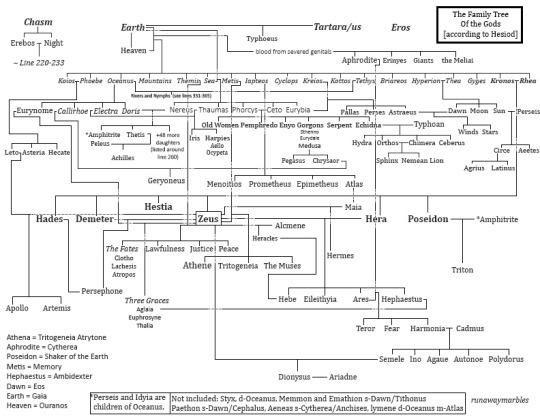
I have done the impossible, and that makes me mighty.
31K notes
·
View notes
Photo

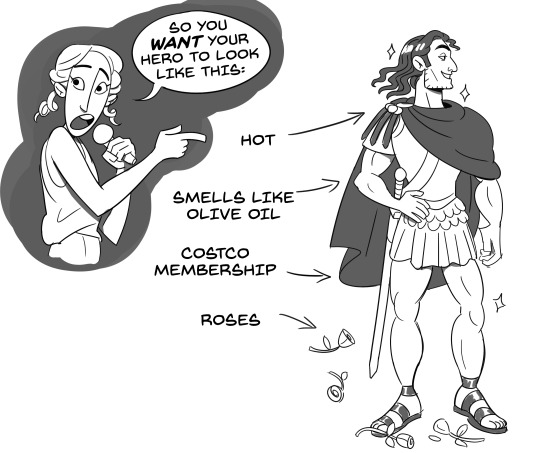
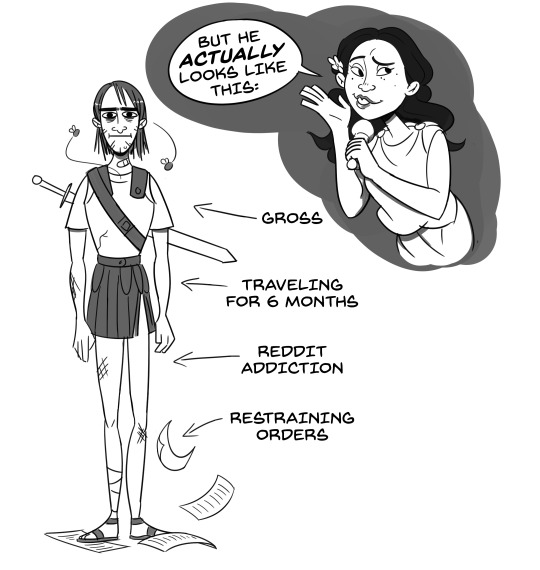

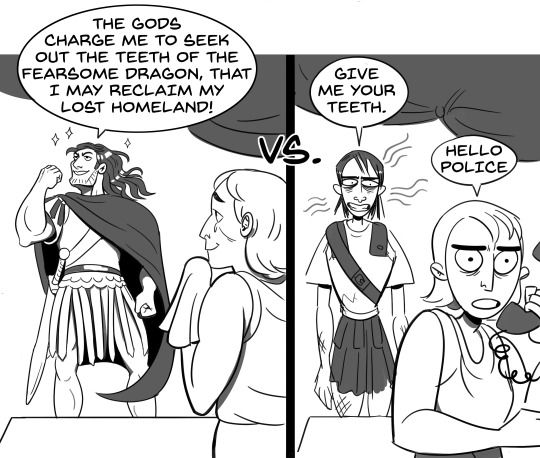

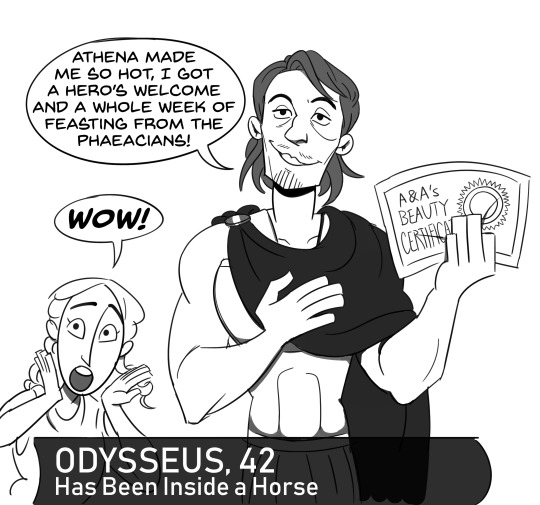




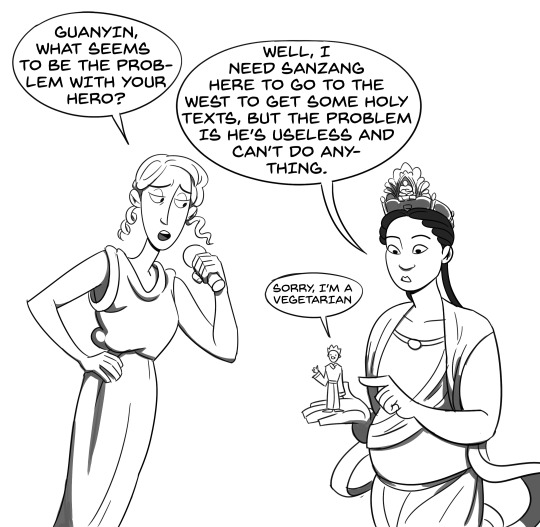




–
based on these passages from the odyssey and the aeneid (and i think it might have happened in the iliad too, though i can’t remember where):
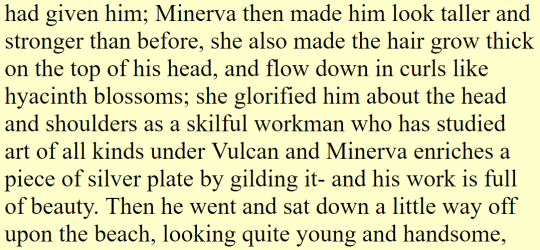

athena and aphrodite know EXACTLY what matters and that is HEROIC BIMBOFICATION!
69K notes
·
View notes
Text
no
Cicero I love you but get to the verb
181 notes
·
View notes
Text
roman ambulance: vivo, vivo, vivo
165 notes
·
View notes
Text
Every post where it says “history books leave this out” and “historians are trying to hide this from us” is just code for “I have literally never picked up a history book outside of high school history class in my entire life”
17K notes
·
View notes
Note
A lot of people on here joke about Alexander being “crazy” or “insane”, and I know some people hold the belief that he was an insane monster (I even saw an article titled “Alexander the Monster” which basically made Alexander out to be worse than the devil lol). I was just wondering what you think regarding Alexander’s mentality/sanity and why do you think some people believe that he was this crazy psychopath. Btw, I just finished reading Becoming and I loved it!!!!
First, thank you! I’m glad you liked the novel! Now, on to the question…
When people talk about “crazy” Alexander, it usually falls into two different categories. One subset is that Alexander went crazy with grief after Hephaistion died; I’ve argued against this elsewhere, so won’t again here in any detail.
Another subset claims he became megalomaniacal, pointing for proof to his “Persianizing,” including an attempt to introduce proskynesis (the bow before the Persian Great King that Greeks viewed as due only to gods), his desire to be deified, and a penchant for dressing up as various gods (Dionysos, Herakles, and even Artemis).
That tendency isn’t just on Tumblr; similar accusations are made in academia under the maxim that, “Absolute power corrupts absolutely.” (Lord Baron Acton)
Yet that’s the cynical take. I think how one views the world (and human nature) has something to do with how one interprets Alexander’s behavior. We must recall that Alexander lived in a society where kingship was seen as divinely bestowed, and carried with it certain religious obligations with regard to one’s subjects.
Remember, not just anybody could be king of Macedon; one had to be an ARGEAD: e.g., from a specific family (gens). They were descendants of Herakles, and so of divine descent. This is different from the Successors who followed. Alexander was raised as a prince; Ptolemy, Antigonos, or Seleukos were not. The importance of these heroic ties can be found in the stories that popped up later, making Ptolemy a bastard of Philip (and thus an Argead), or the later Seleucid claim of descent from Apollo. And we know the Molossian royal house claimed descent from Achilles.
Again, not just anybody can be a king. One has to be special by descent.

Being born to the purple doesn’t necessarily make one any less of a dick. We’ve plenty of evidence to the contrary. (Demetrios Poliorketes? Pyrrhos? Antigonos IV Epiphanes?) But it does instill a different awareness of one’s place in the world.
Modern cynicism forgets just how seriously ancient people took religion. On his deathbed, among the last actions Alexander forced himself to perform until he literally couldn’t get up, were morning sacrifices to the ancestors and gods, on behalf of the Macedonian people. I think that says a lot not only about his own religiosity, but his sense of himself as a conduit between his people and the gods. The proper performance of religious rites were central, not just to his success, but to the survival of Macedonia. In our modern world, it can be hard to connect to this somewhat archaic notion.
In addition, the stories of him visiting hospital tents after battle, personally writing letters to his officers, talking and joking with his soldiers, marching with them, eating what they ate, and dressing as they dressed, all point to somebody who understands the principles of leadership, as opposed to just bossing people around. Some have argued that he lost that as time went on, but he was still out marching with them in Gedrosia (despite a collapsed or partially collapsed lung), so I’d argue he did not. The helmet incident (where he poured out precious water brought to him, because the rest of his men didn’t have any) is an exemplar of his continued understanding of what solidarity meant. It may have been as calculated as hell, but that’s not the act of a madman or megalomaniac. Also, just because it was calculated doesn’t mean it wasn’t genuinely meant. He was trying to keep his men alive, not let them give up.
Did Alexander, over time, turn into an arrogant little shit? Almost certainly, given his mind-boggling achievements, and the fact the Greeks never touted humility as a virtue. But I don’t believe he was a narcissist or had taken leave of reality. Such characterizations are simplistic, played for pop approval and laughs, or because it’s too much effort to look under the surface.
I do think he was struggling desperately to figure out how to govern such a vast, international empire, and not in some Tarn-esque “Brotherhood of Mankind” way. He never (personally) lost a battle, but uniting Eastern and Western ways of rule was a puzzle he never solved. THAT was his great failure. F. Scott Fitzgerald wrote, “Show me a hero and I’ll write you a tragedy.” And that’s where Dancing with the Lion will eventually head. Alexander’s story is, ultimately, not a triumph, but not because he was crazy or a Macedonian Hitler.
I’d also point out that people who oversimplify Alexander as either a demon or demented, are buying, hook, line and sinker, the moral narratives of the ancient authors, especially of Plutarch, Curtius, and Justin, but also Arrian and Diodoros. These are not neural accounts. We must be careful of their biases.
All that said, I don’t want to excuse Alexander’s war crimes (and I don’t know what else you’d call some of what he did). But even those were not the actions of a “crazy” man. They were brutal, but considered (which may be worse).
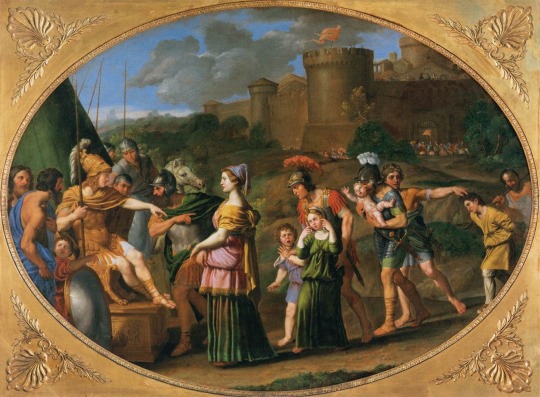
Razing Thebes sent a message of what happens when a city foreswears an alliance multiple times. Rounding up and killing Greek mercenaries after Granikos sent a message to others serving under Darius (an attempt to peel off some of Darius’s more dangerous support troops). Razing Tyre (and Gaza) sent a message about what happens when resistance defies certain “rules of war” (Tyre’s treatment of the heralds). The burning of Persepolis was not a drunken frat party gone wrong; it was a political statement. Note ALL moveable wealth was gone and it happened just before they left, plus it destroyed the place where Persian kings were crowned, preventing one from emerging in Alexander’s wake. (Not that Bessus cared, nor Spitamenes after him). Philotas fell victim to a real conspiracy (even if he wasn’t part of it), not a CIA file (contra Badian), and the Proskynesis Affair was an attempt to regularize court procedure not institute worship of Alexander. The murder of Kleitos was, indeed, a drunken brawl, with no good excuse, but was followed by (I think) genuine remorse, even if he accepted the forgiveness of the troops because he needed to.
Even the choice to enter Gedrosia wasn’t the decision of a madman, but of one whose logistics were legendary for working…except when they didn’t, because of an uprising and monsoon behind them that was unplanned for. It was a FUBAH, not a foolish choice. He was looking for a trade route linking India and Mesopotamia. Notions that he just wanted to one-up Cyrus and Semiramis misses the point.
The so-called request to the Greek states for deification is problematic as to just what he asked, versus what was later said (remember, we’re hearing about it from Athenian demagogues who hated him). The claim to be the son of a god was not megalomania or a shot at divinity, but an affirmation of hero status; being the son of a god didn’t necessarily mean one was immortal one’s self. As for precedent, his own father had put a statue of himself alongside the 12 in his final parade, plus there’s a heroōn (hero shrine) built above Royal Tomb I at Vergina. That’s either Philip buried there (my own personal opinion), or his father Amyntas III. The Spartan general, Brasidas, received hero cult from Amphipolis after his death, but Lysander accepted it from the Samians will still alive.
Alexander outstripped every one of these by no small measure, and seen in context, his claim to be a son of Zeus-Ammon is not some bizarre, out-of-left-field assertion. If Lysander was a hero, and his father Philip, then what did that make Alexander? And the inflated “Final Plans” were about 50% invented by Perdikkas to get the army to vote them down.
Alexander did terrible things and we need to let those terrible things stand—call them out and recognize them. Yet when I look at his behavior, even in his latter years, I just don’t see the horrific corruption of, say, the Trump administration, or of Vladimir Putin’s Russia, or Xi’s China. At some level, I think Alexander still saw himself, and struggled to be, a “Philosopher King.” He just didn’t know what that meant anymore.

I think, by the end, he was lost. Macedonian kings were expected to win wars and provide loot. Alexander did that to a degree no Macedonian monarch had ever before achieved. He was the Energizer Bunny of Macedonian kings. His own men (and culture) had created a monster. No wonder he felt betrayed by their “indiscipline” on the banks of the Hyphasis. “But I gave you even more than you ever dreamed of!”
Indeed, he did. That was the problem. They made him turn around. When his army “defeated” him, he wasn’t sure who he was any more, or what he was doing. I see a lot of his career after as a scramble to re-define himself. He’d conquered all this territory at a relatively young age. Now what was he supposed to do with it? Ruling is a lot less glamorous than conquering.
He’s perhaps the greatest military mind who’s ever lived (tied with Subutai, Genghis Khan’s general). He was also an exceptionally inspirational leader. But that “ruling schtick”? It got in the way. Appointing Hephaistion chiliarch was among his smarter decisions, even if Hephaistion died on him too soon. It was tacit recognition that he needed help. I’ve joked that Hephaistion’s appointment amounted to, “Here, you figure out how to make this whole thing work; I want to go conquer more stuff.”
Once he lost Hephaistion, he became a boat without a rudder. But as noted, his mourning was not beyond the pale. The only difference is that he had the money (and authority) to impose his wishes. As a former bereavement counselor, I wrote an article called “The Mourning of Alexander the Great” that deep-sixes misconceptions about mourning and Alexander’s behavior.
Was he “crazy”? No. Was he the devil? I’m sure the countries he invaded thought so. Was he a megalomaniac? Almost certainly not. Was he an arrogant asshole (especially when he’d been drinking)? Almost certainly so. But his arrogance sprang from an odd mix of massive, early success mixed with deep insecurity spawned by his upbringing.
I find him fascinating precisely because he’s not a simple read. He’s not Donald Trump. He’s not Adolf Hitler. He’s not even Caesar, or Napoleon. He’s intensely complex, which is, I think, the source of his continued fascination.
I’d advise those who read about him to allow for that complexity. Avoid simplistic readings, even while not white-washing the really ugly side of his career.
142 notes
·
View notes





